The Efficiency of a selection of 8 PC Game Launchers – Comparing CPU / GPU / RAM usage and impact on Power Draw
This analysis showcases the efficiency of a selection of 8 popular PC game launchers or clients on idle and load states using an Intel/NVIDIA-based gaming rig. We compare CPU, GPU, and RAM usage, along with the impact on power consumption, on idle and static load scenarios using different PC game launchers programs, and we perform all tests on the same client version, hardware configuration and on the same OS build. We don’t include a dynamic load testing scenario because it doesn’t allow apples-to-apples comparisons between the launchers or clients.
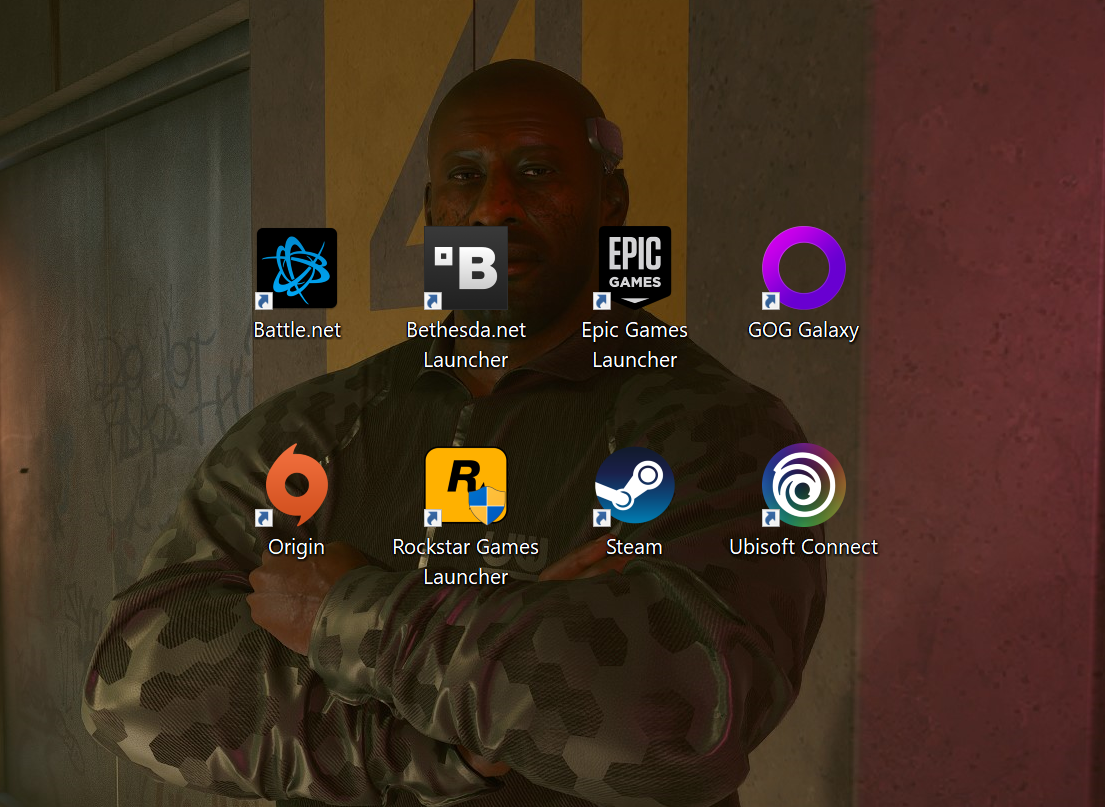
Our testing platform is a recent install of Windows 10 64-bit Pro Edition, an i9-9900K with stock clocks, a Gigabyte Z390 AORUS PRO motherboard, 32GB of Kingston DDR4 3333MHz, and a Gigabyte AORUS GeForce RTX 3080 MASTER graphics card.
The launcher version, settings, and hardware are identical except for the specific launcher or client we compare.
Before offering the data, charts, and corresponding screenshots of each different analysis scenario, it is important to describe both the hardware and software configuration used in our testing as well as the analysis methodology.
Benching Methodology
Test Configuration – Hardware
- Intel Core i9-9900K (Hyper-Threading/Turbo boost on; stock settings)
- Gigabyte Z390 AORUS PRO motherboard (Intel Z390 chipset, v.F9 BIOS)
- Kingston HyperX Predator 32GB DDR4 (2×16GB, dual-channel at 3333 MHz CL16)
- Gigabyte AORUS GeForce RTX 3080 MASTER 10GB (rev. 1.0); v.F2 VBIOS, stock clocks
- Samsung 500GB SSD 960 EVO NVMe M.2
- Seagate 2TB Desktop SSHD SATA 3.1
- Seagate 2TB FireCuda SATA 3.1
- Corsair RM750x, 750W 80PLUS Gold power supply unit
- ASUS ROG Swift PG279Q 27? IPS 2560 x 1440 165Hz 4ms G-Sync Monitor
Test Configuration – Software
- NVIDIA GeForce 460.89 drivers
- Windows 10 64-bit Pro edition, latest updates v20H2, Game Mode, Game DVR & Game Bar features off, High-performance power plan.
- GIGABYTE tools are not installed.
- Latest DirectX
- All PC Game launchers/clients are patched to their latest versions at the time of publication.
Testing Scenarios (definitions)
Idle state
- The launcher is active as a background process(es) and minimized to the Windows 10 system tray taskbar section. No other third-party program is running or active in the background.
Static load state
- The client is active as a focused application, with the launcher window opened and with static UI elements displayed on the screen. No other third-party program or application is running or active in the background.
Compared Resource Usage Metrics and Power Draw Indicator
- Quantitative metrics
- Current total relative and system CPU / GPU / RAM utilization per launcher/client on idle state reported by Windows 10 Task Manager.
- Average CPU clock speed per launcher client on idle state reported by Windows 10 Task Manager.
- Current relative CPU / GPU / RAM utilization per launcher/client on static load state reported by Windows 10 Task Manager.
- Qualitative metric
- Valuation of current peak impact on power draw per launcher/client on idle and static load states based on Windows 10 Task Manager processes categorizations.
Please note that all the captured and showed efficiency values are approximate and immediate.
Monitoring Tool
- Windows 10 Task Manager resources charts (processes and performance tabs).
Capturing & Screenshot-related Tools
- Print screen OS feature (PrtScn keyboard key).
- MS Paint for editing and saving the images.
Benchmark Suite: 8 PC Game Launchers or Clients
- Battle.net (Blizzard)
- Bethesda.net Launcher (Bethesda Softworks)
- Epic Games Launcher (Epic Games)
- GOG GALAXY 2.0 (GOG, CD Projekt group)
- Origin (Electronic Arts)
- Rockstar Games Launcher (Rockstar Games, Take-Two Interactive)
- Steam (Valve Corporation)
- Ubisoft Connect (Ubisoft Entertainment)
The Summary Charts & Screenshots
We highlight in bold the worst case, or cases if there is a tie, between the launchers on each captured efficiency metric.
Idle scenario

Load scenario
Static load
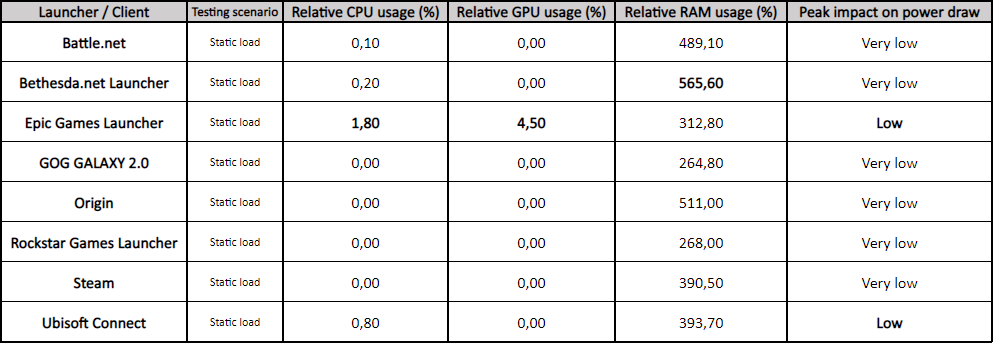
Screenshots per launcher/client and testing scenario
Battle.net
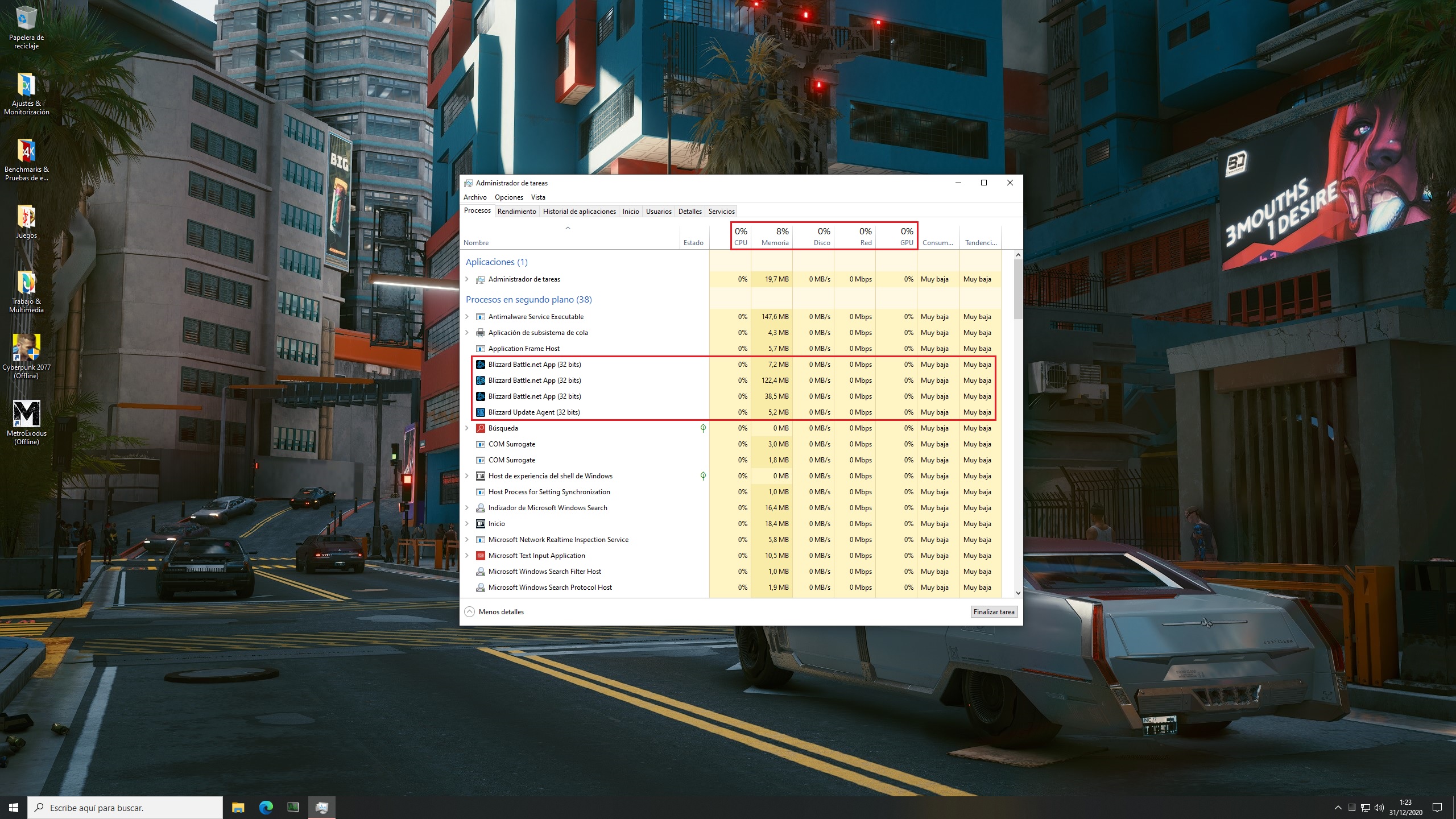
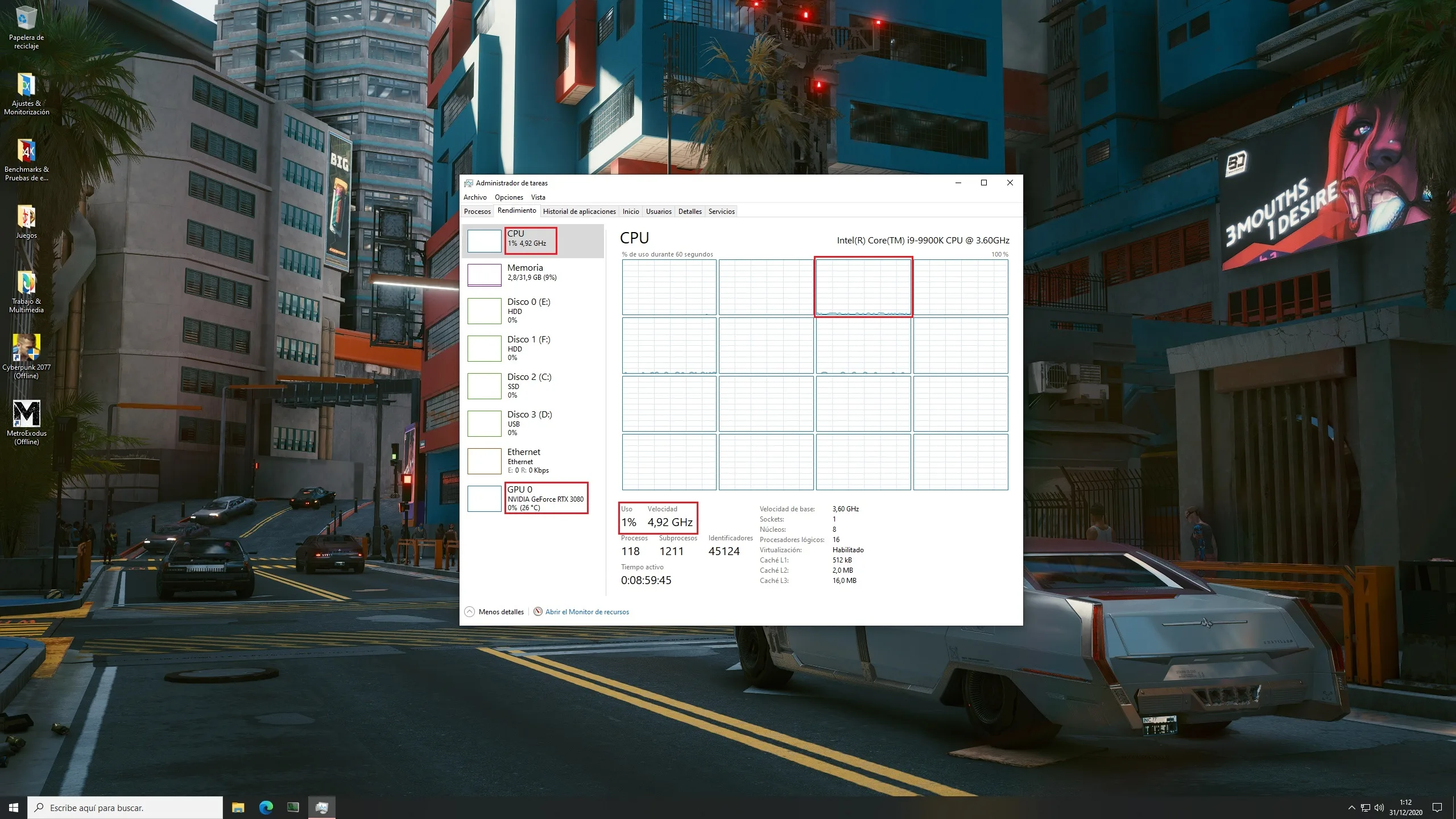
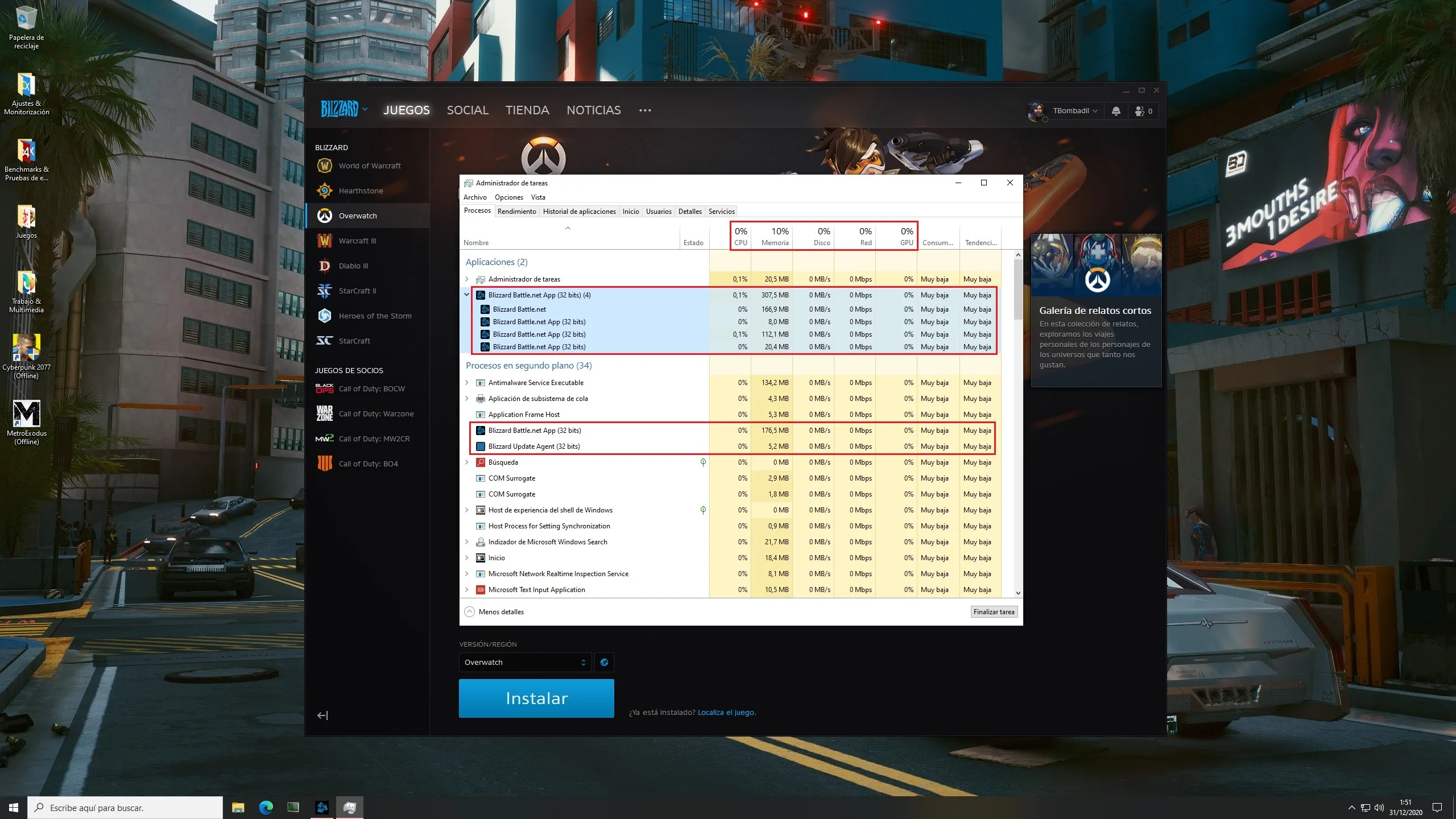
Bethesda.net Launcher
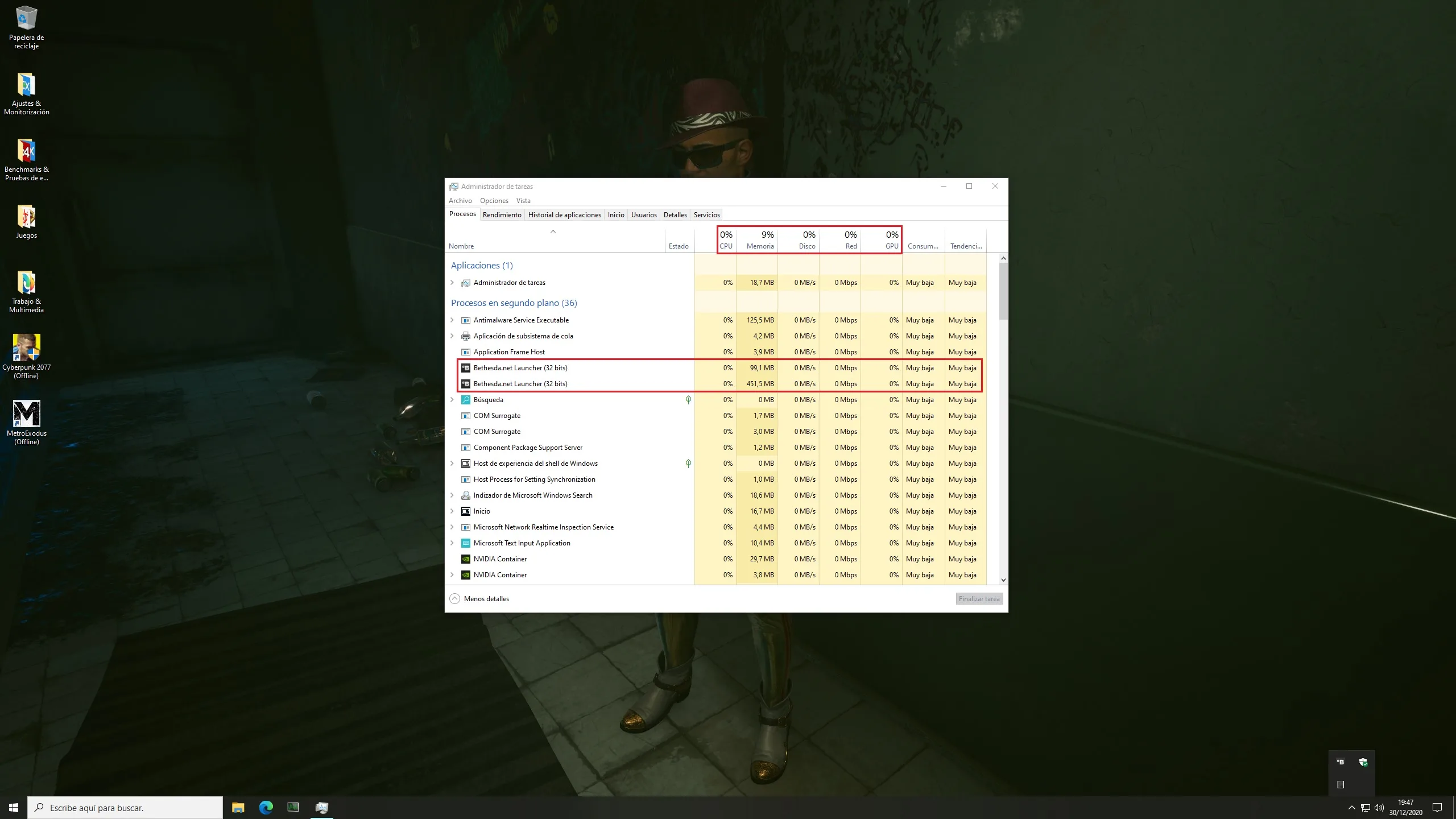
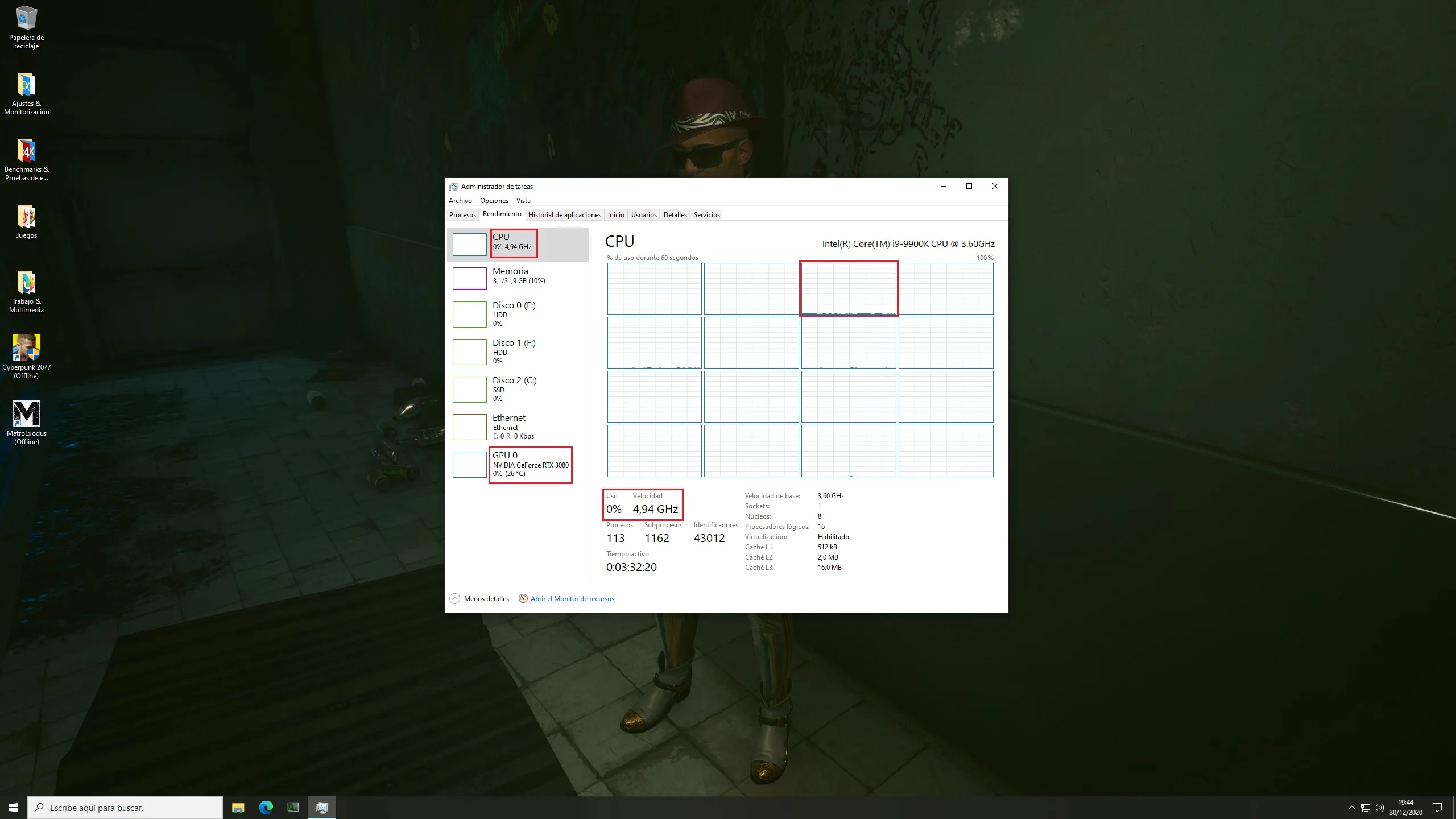
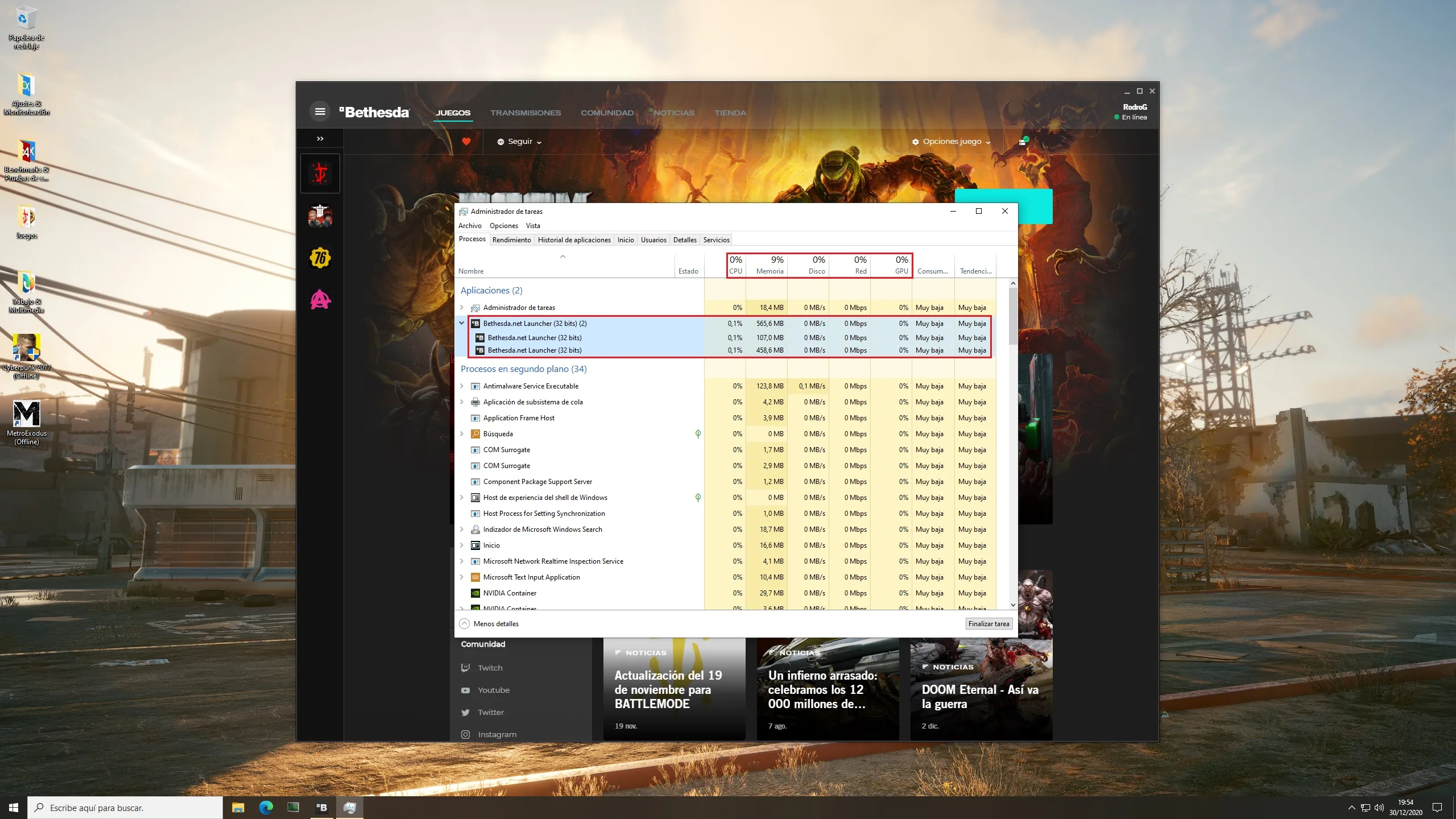
Epic Games Launcher
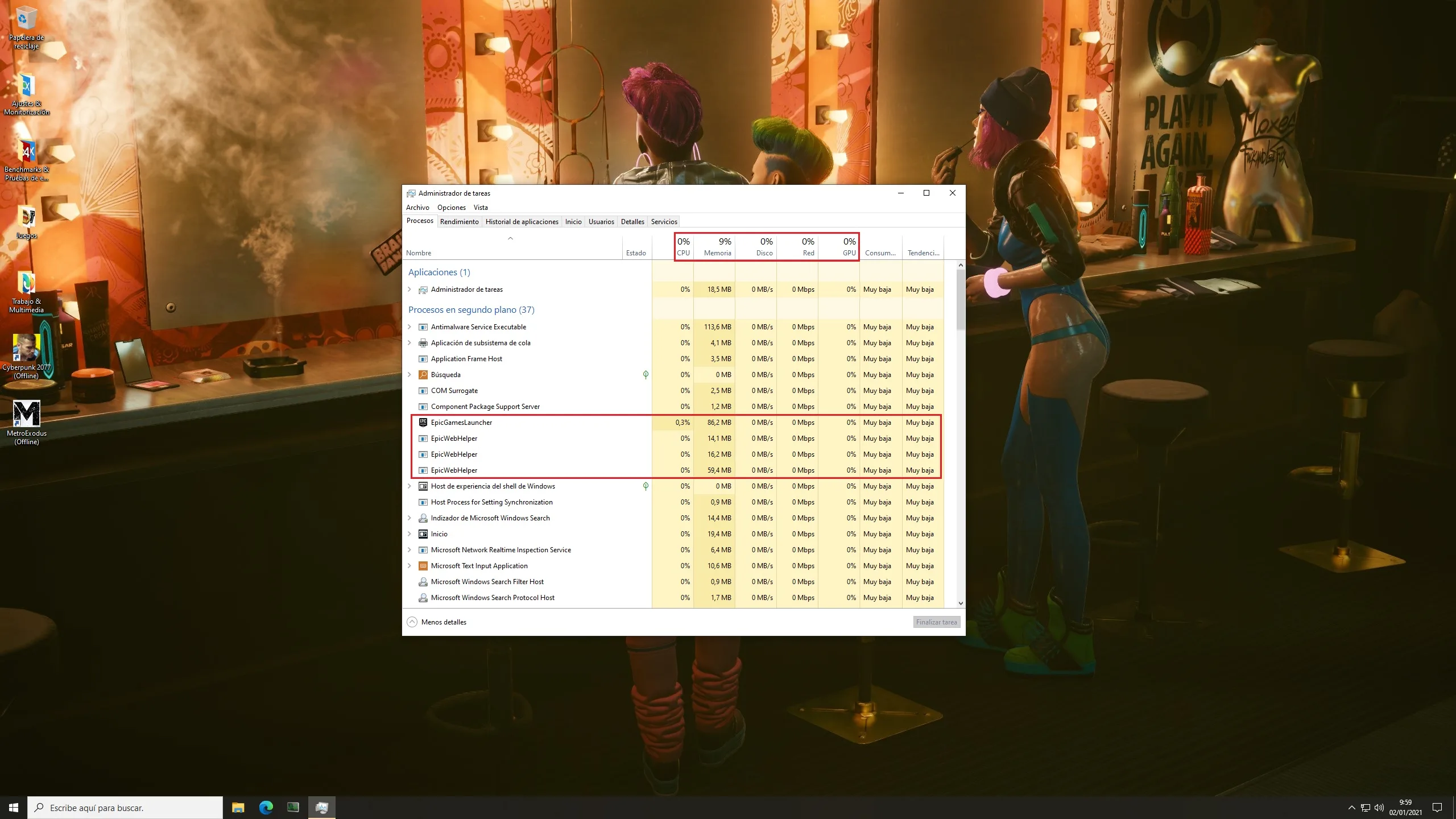
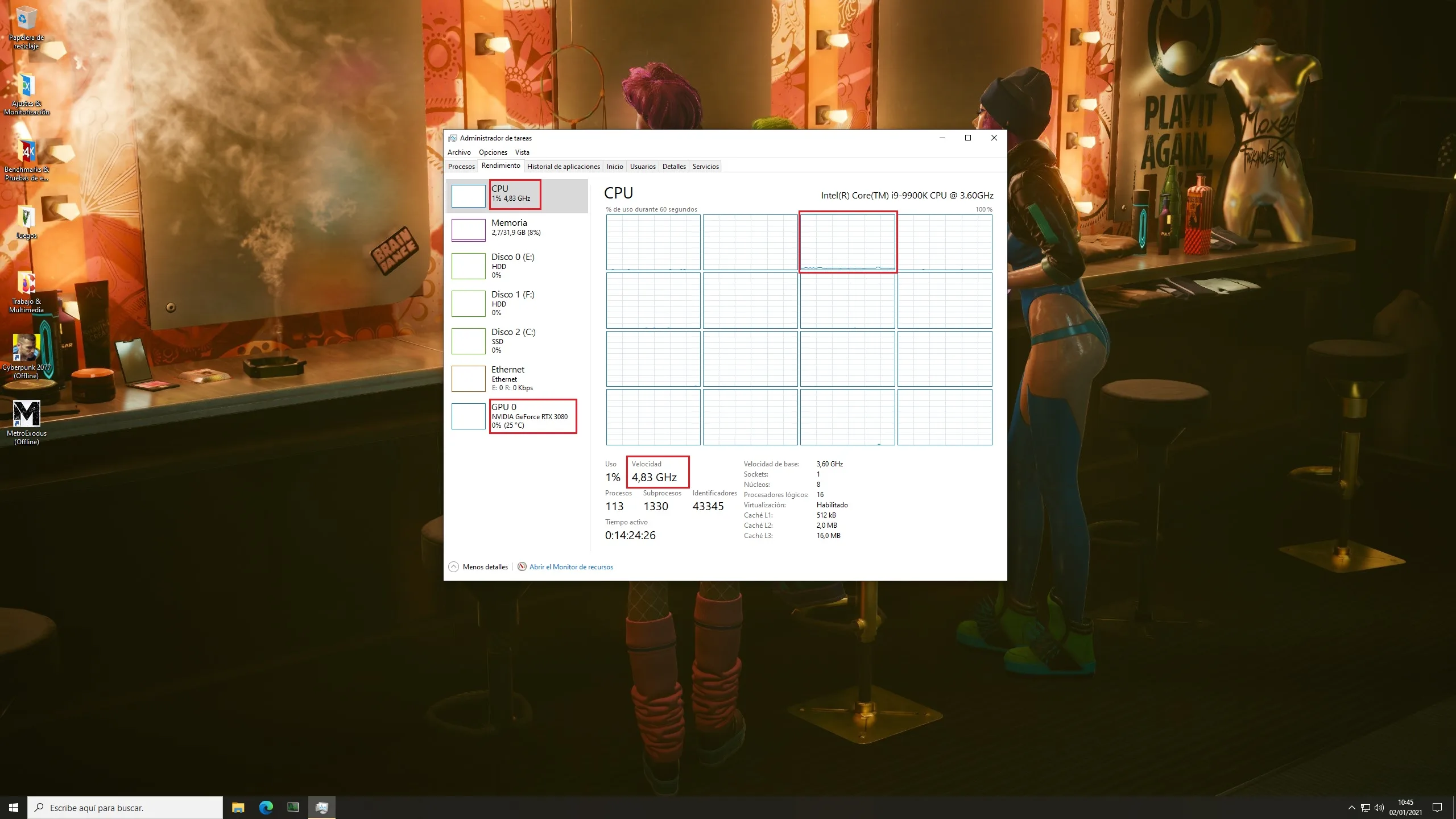
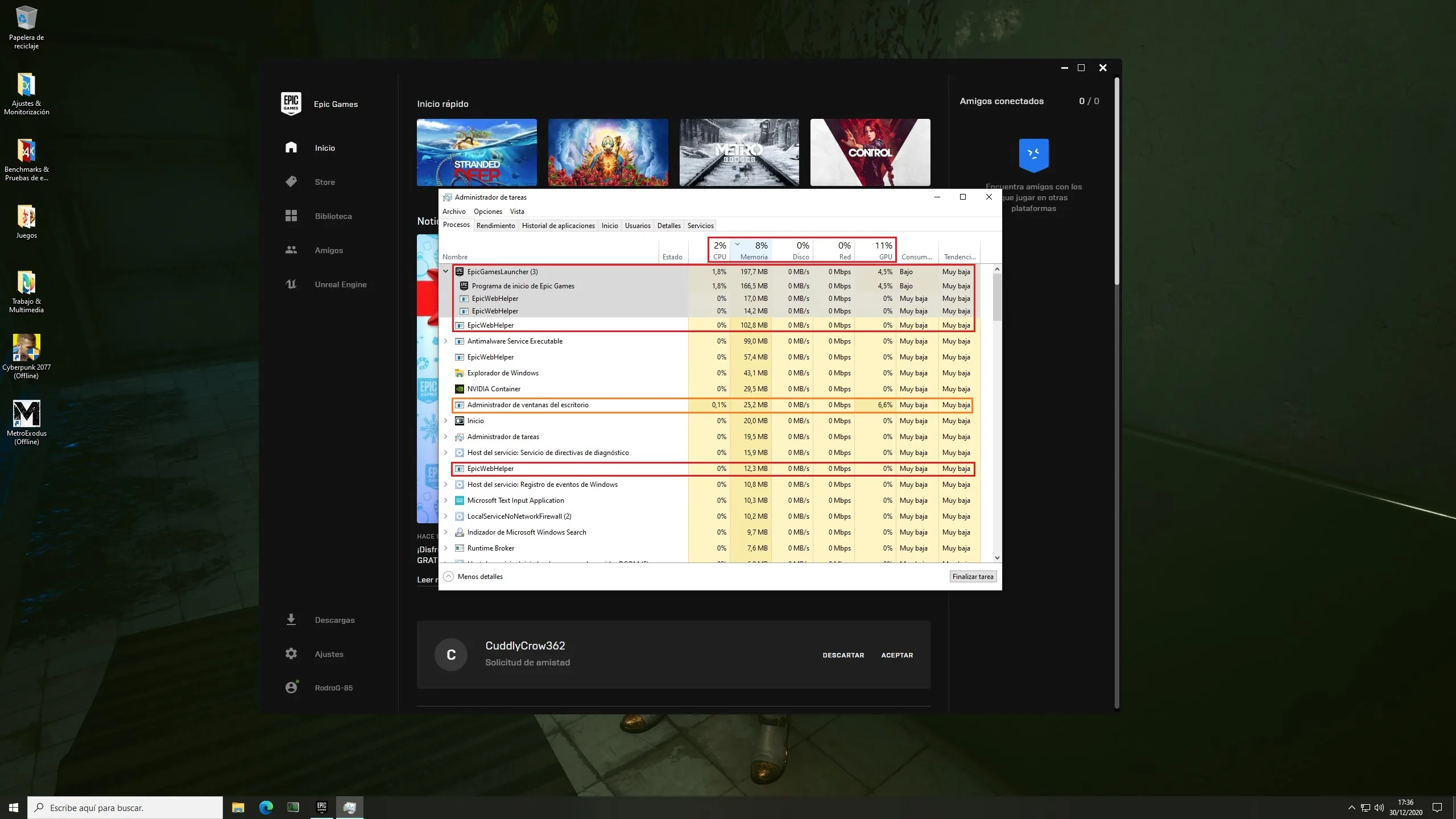
GOG GALAXY 2.0
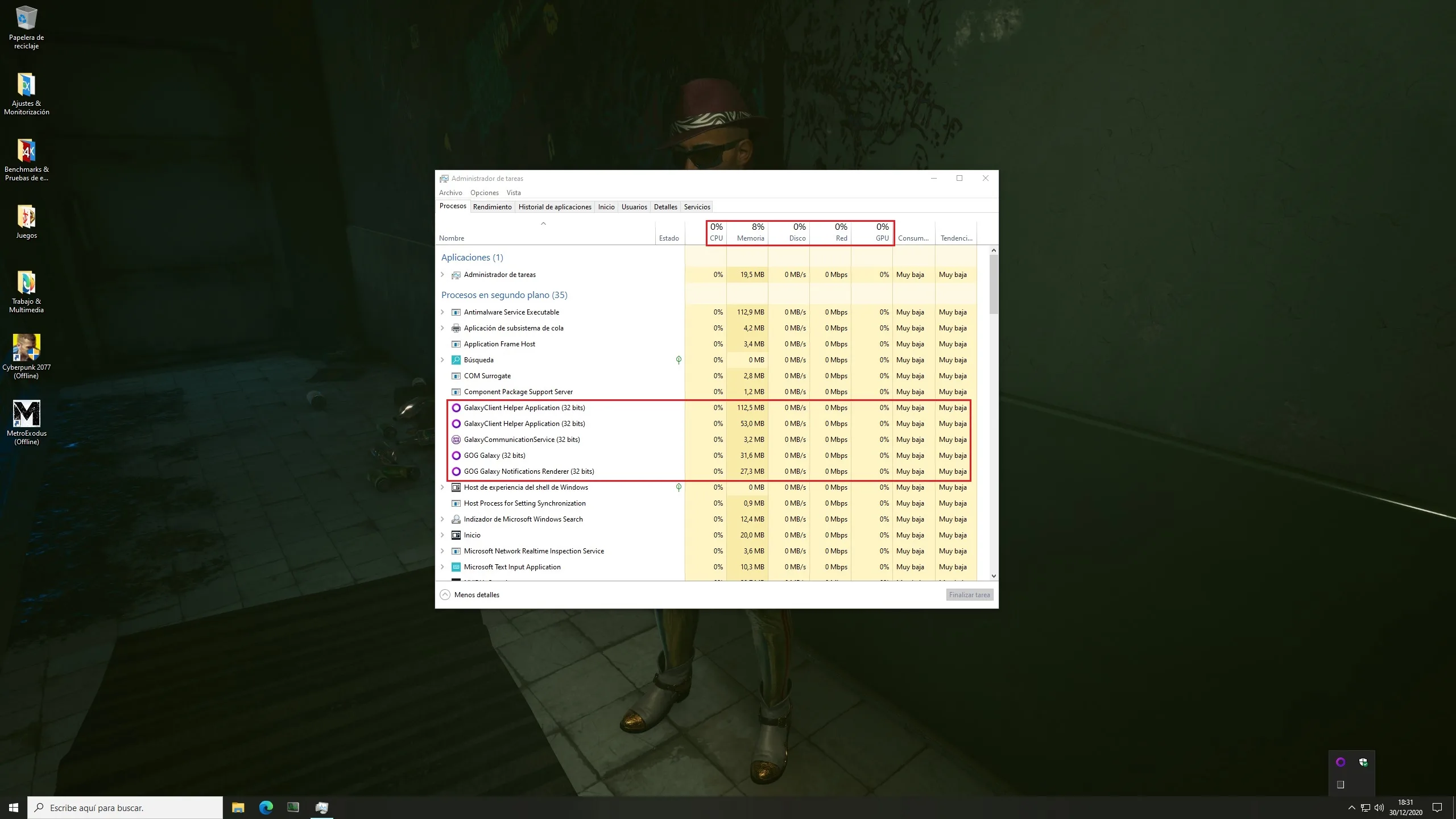
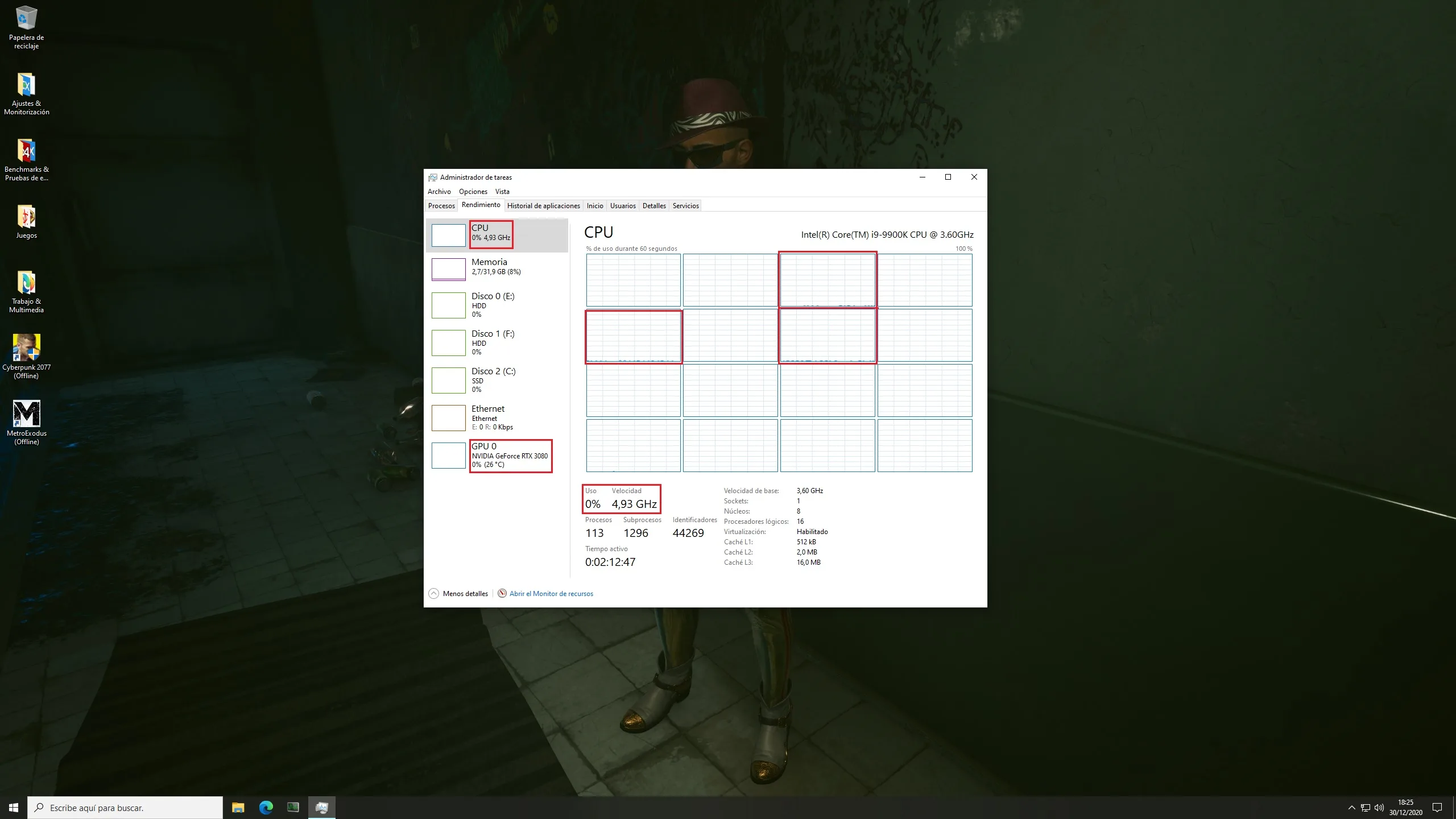
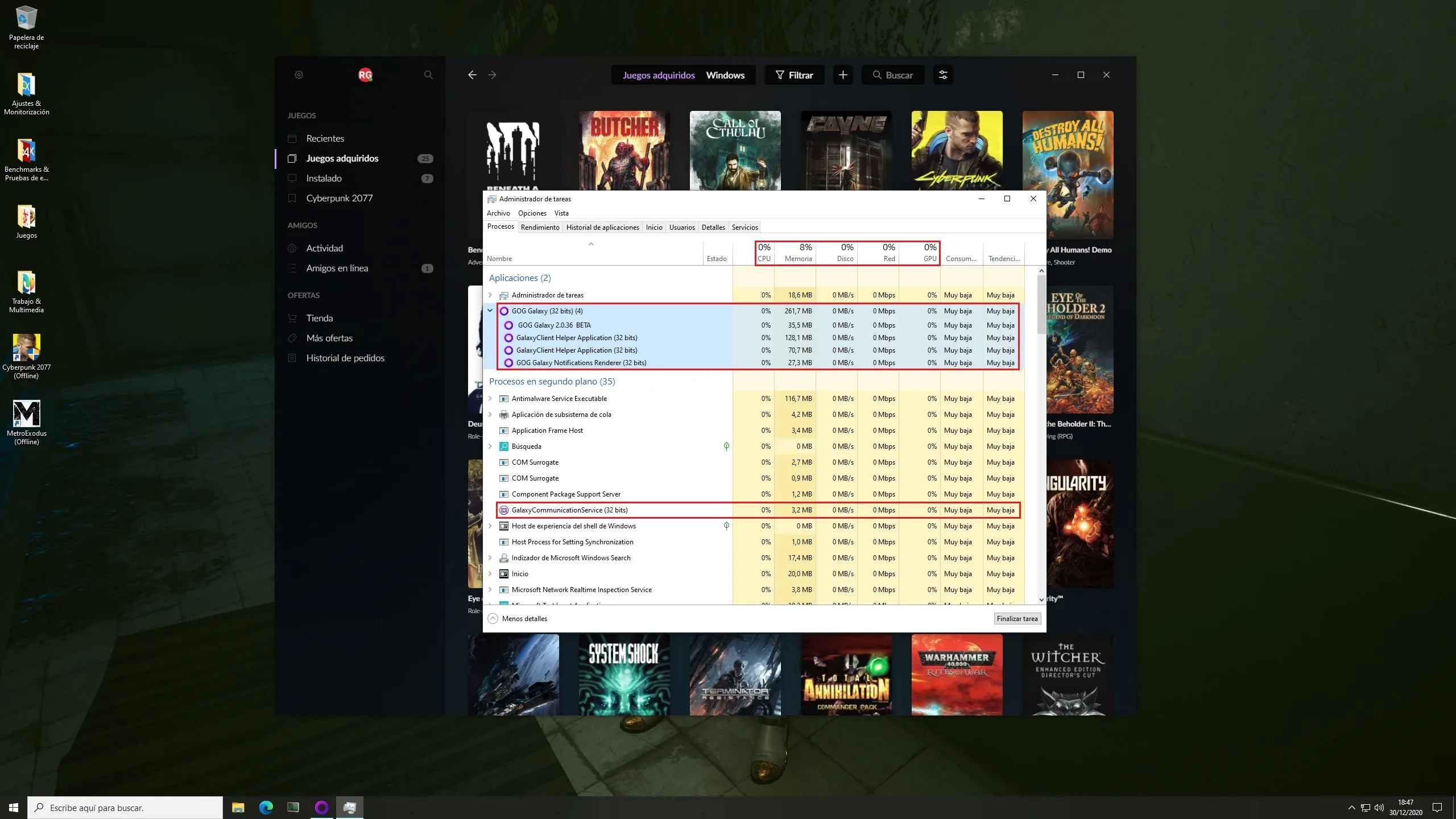
Origin


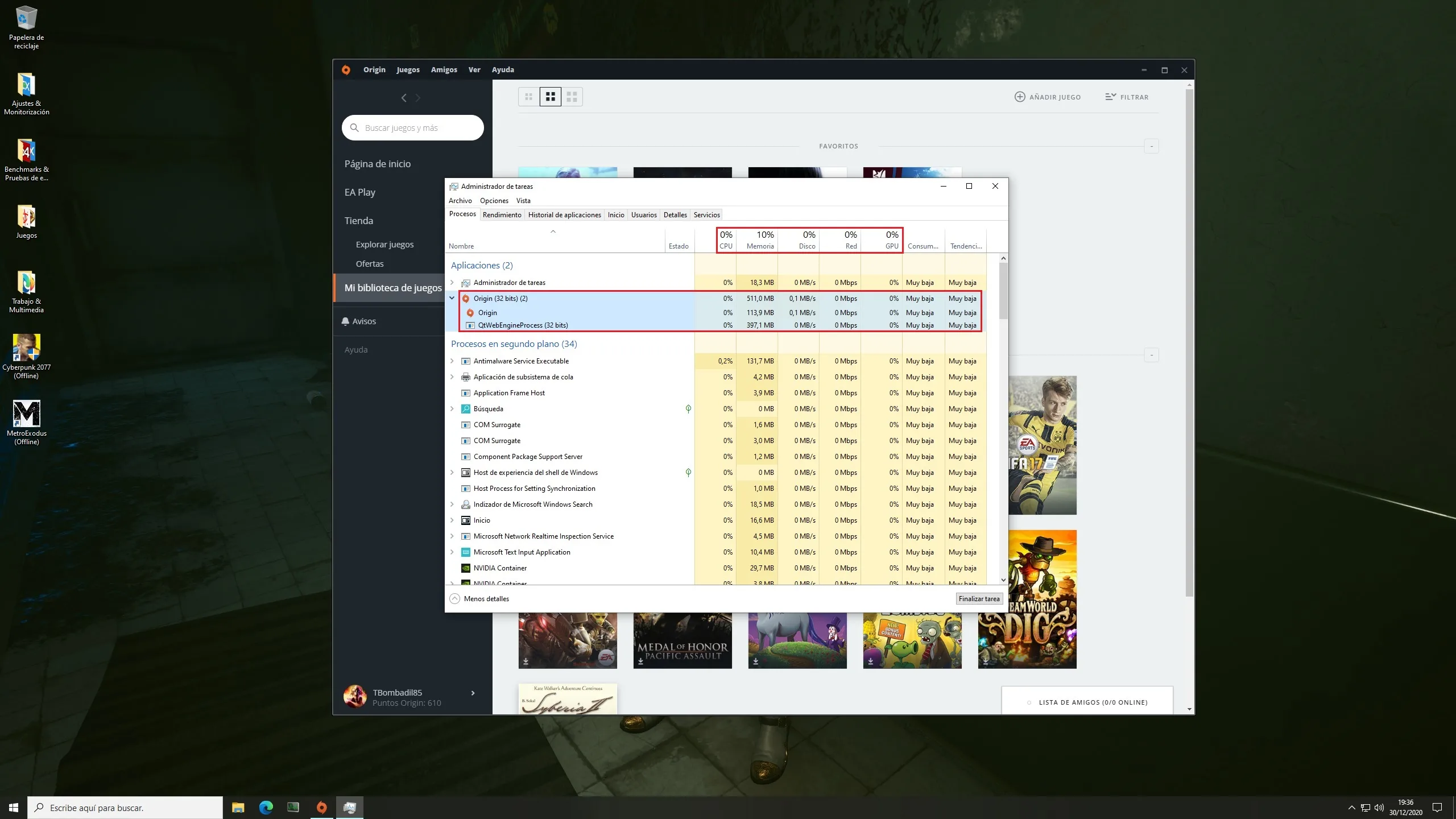
Rockstar Games Launcher
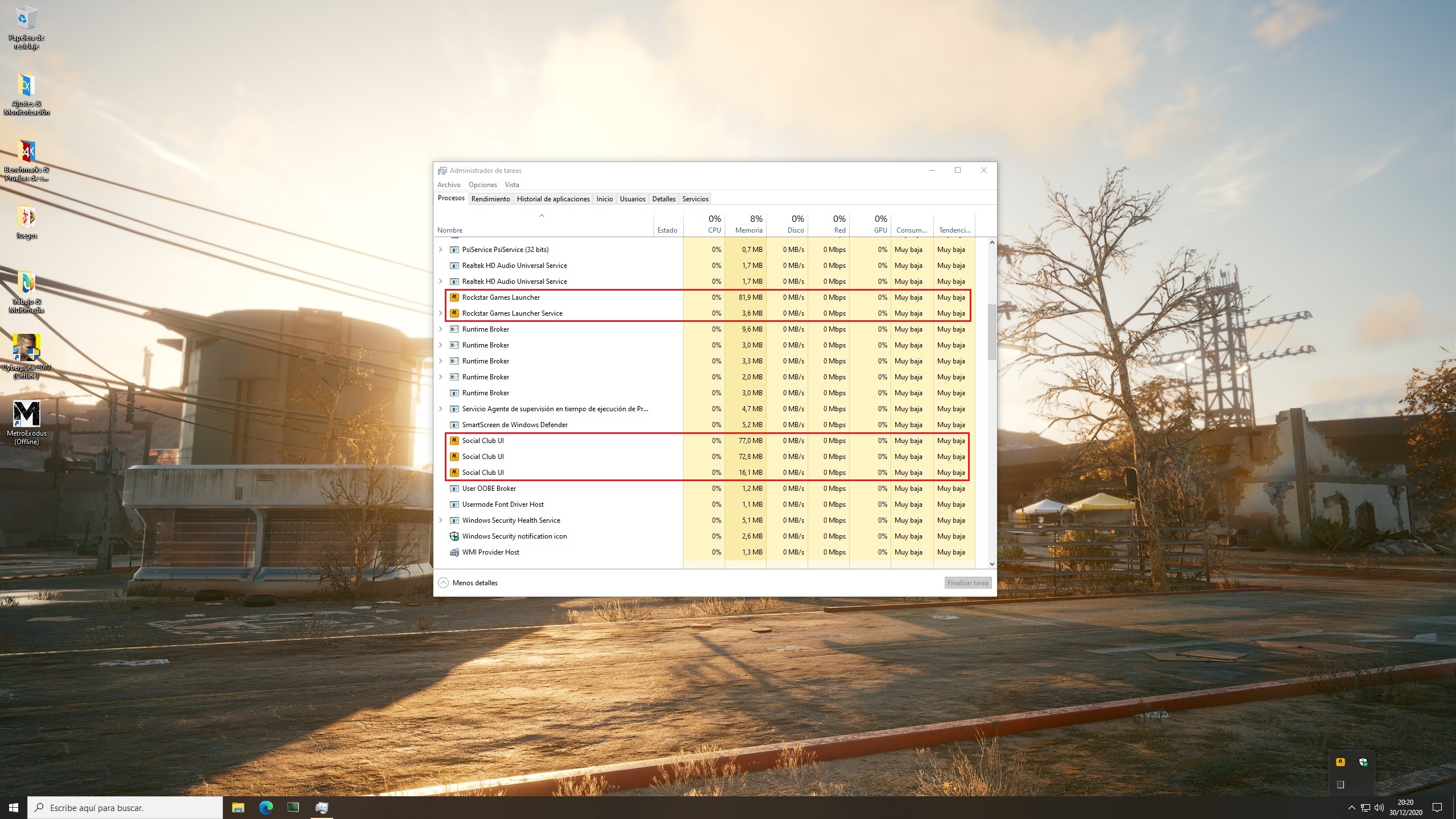
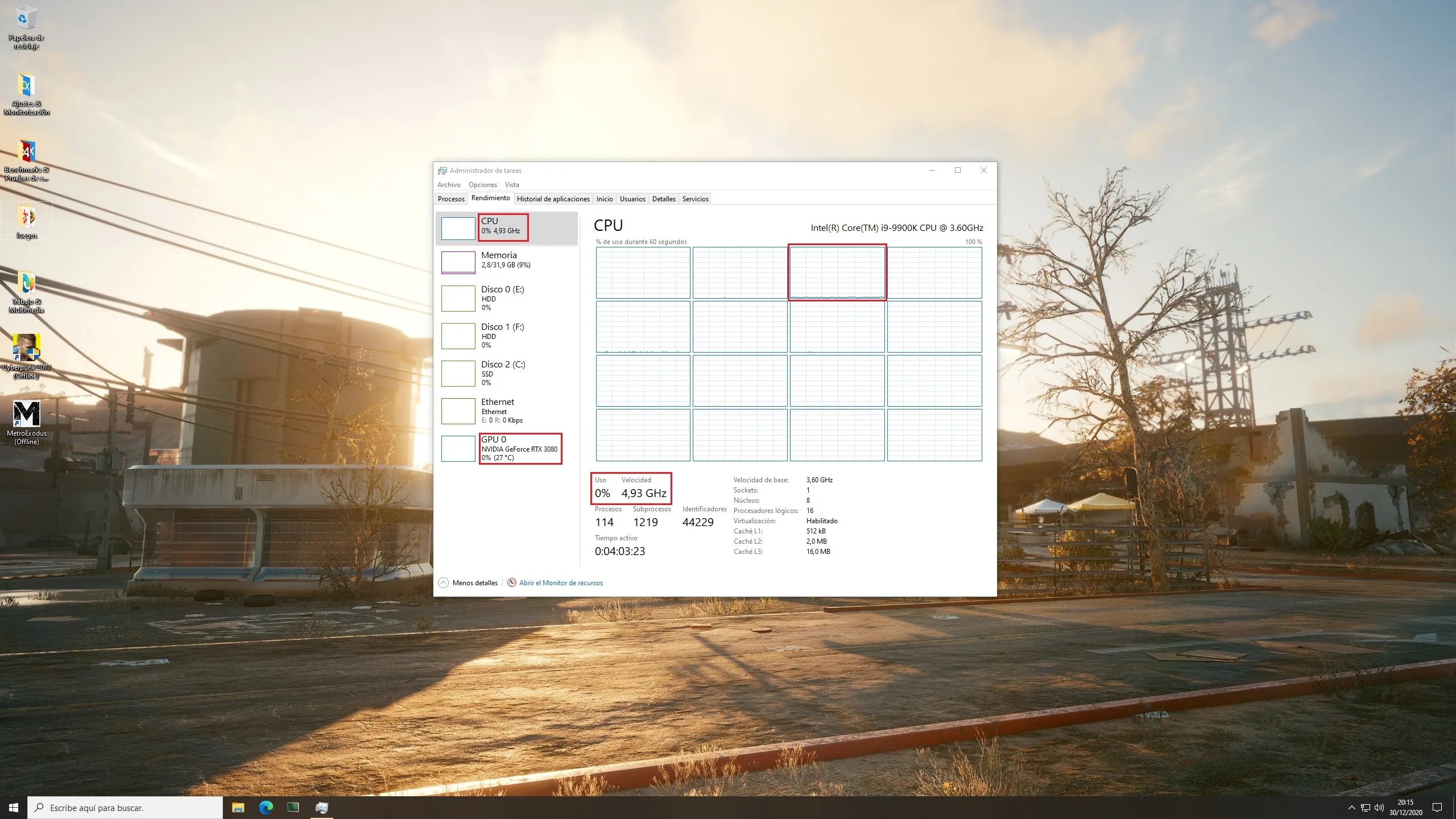
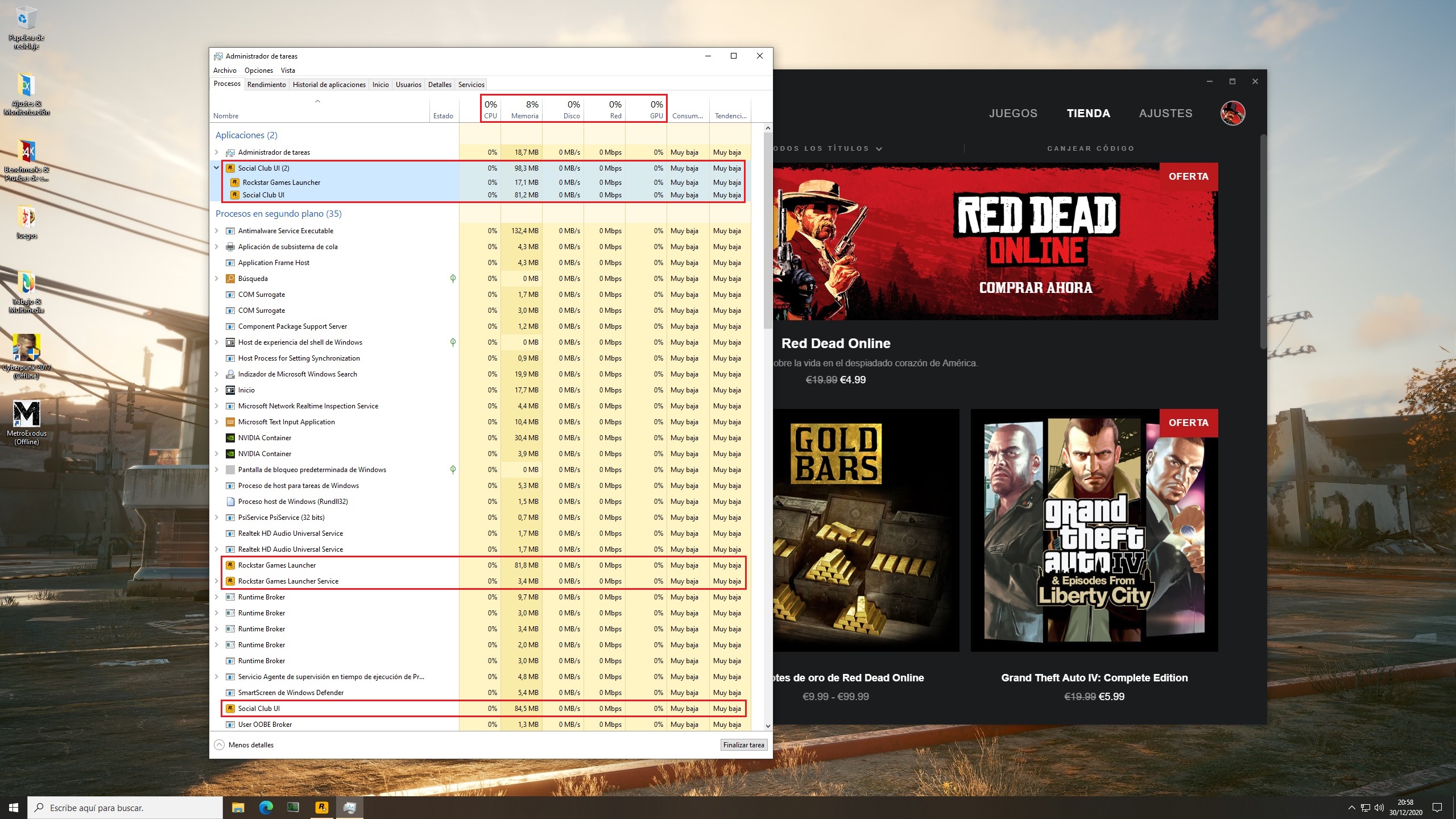
Steam
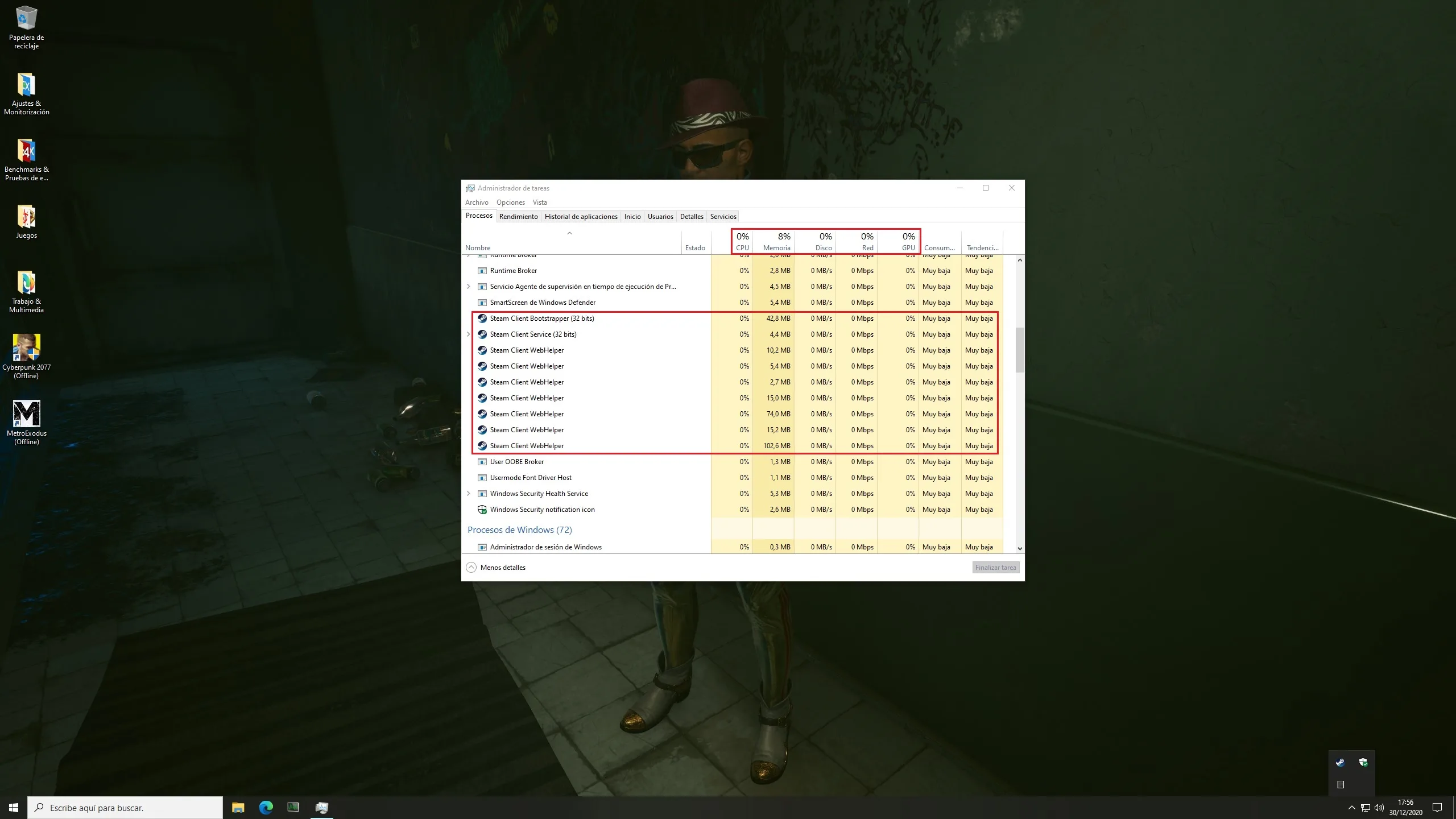
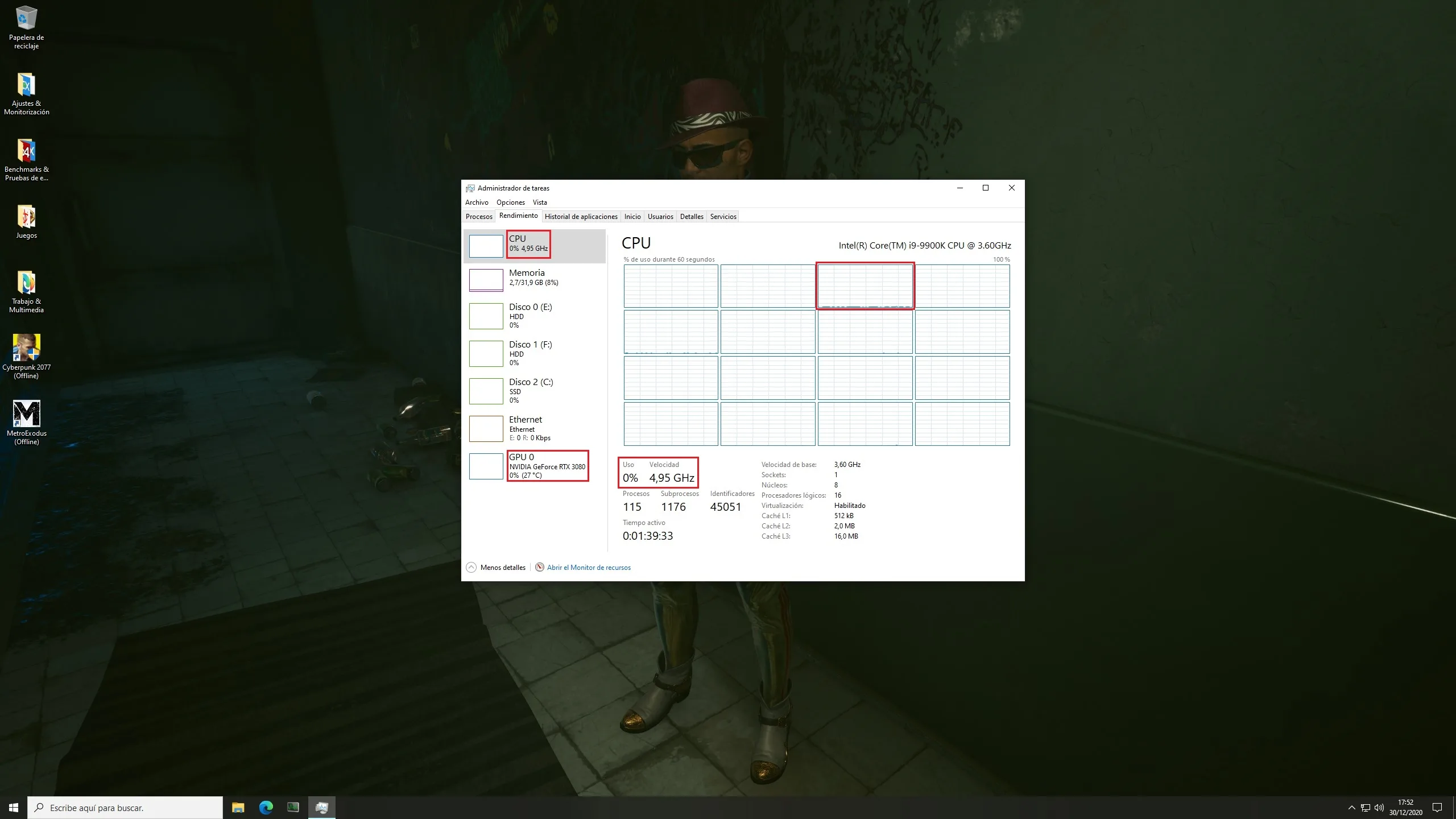
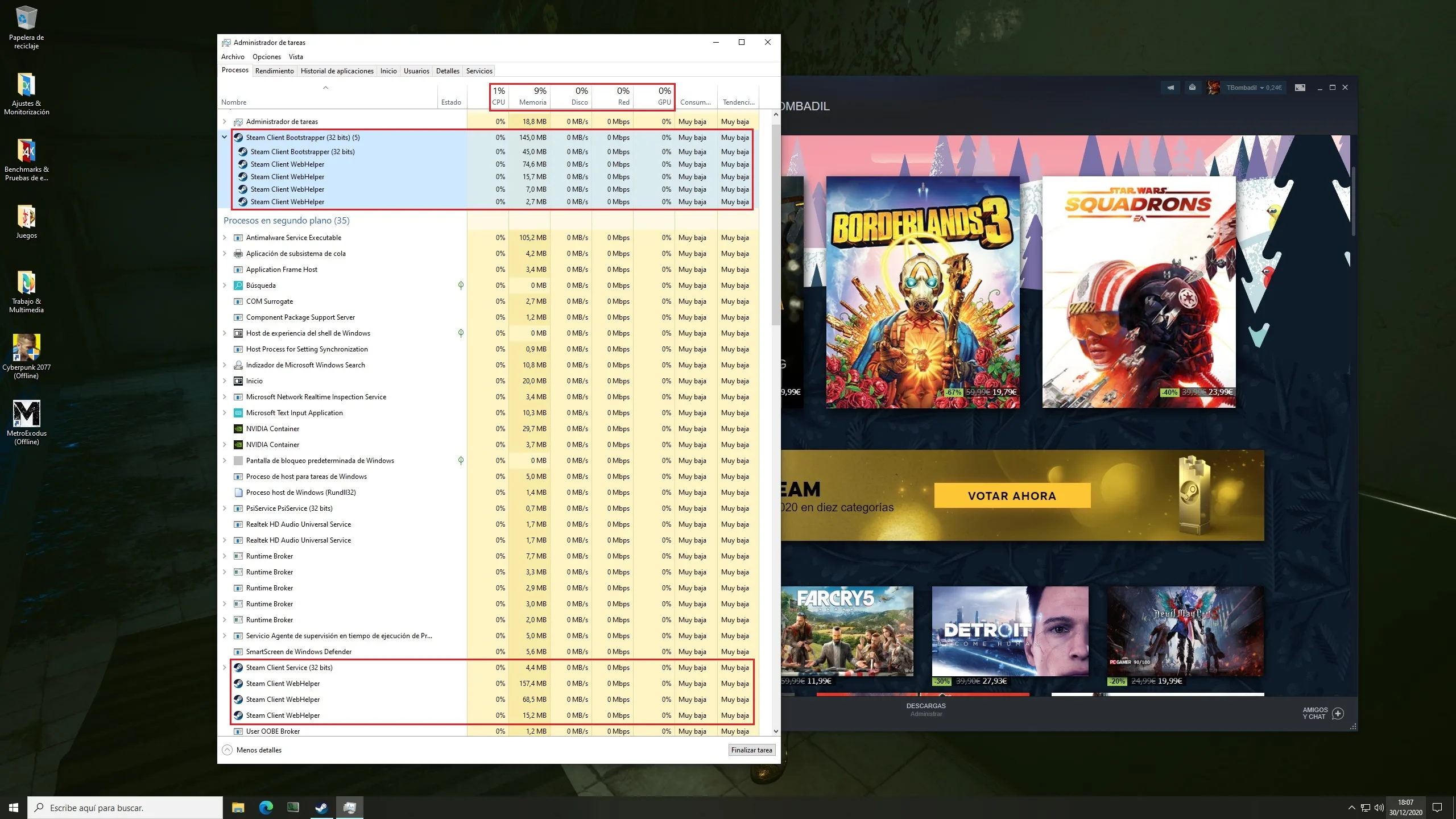
Ubisoft Connect
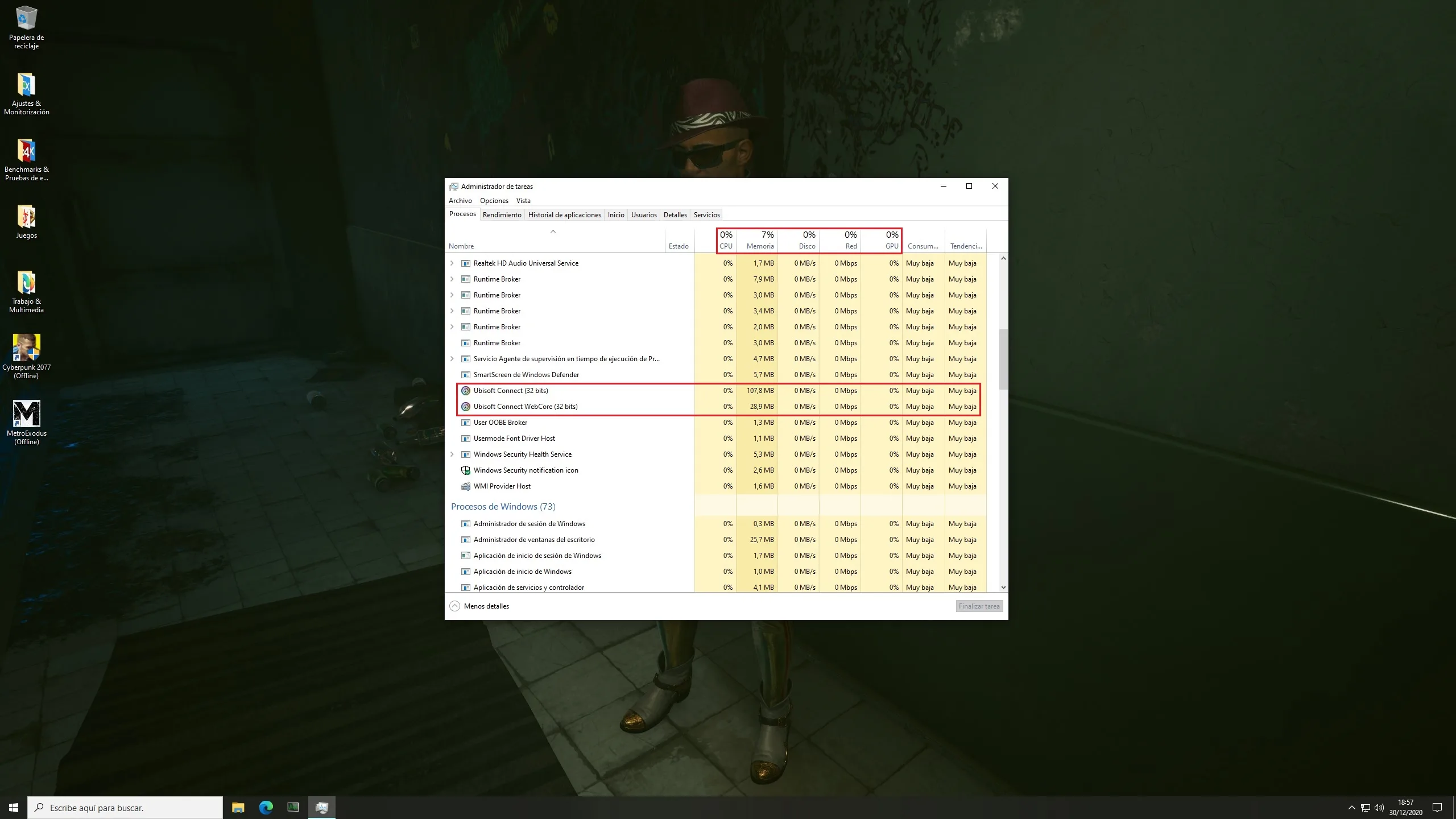

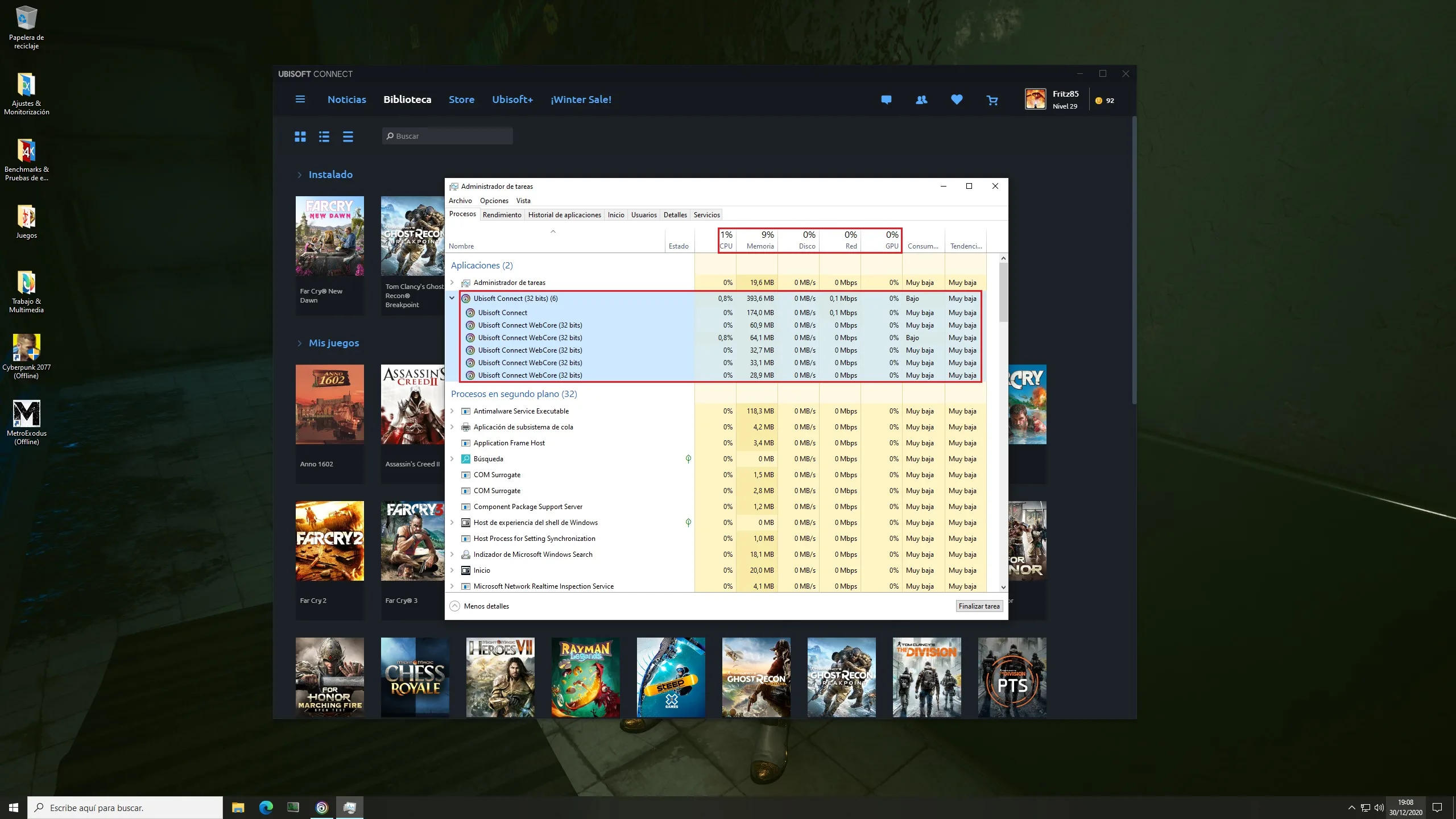
Notes on the Efficiency of the 8 PC Game Launchers
From the charts and screenshots, we see that the differences in efficiency between launchers on the idle state are overall minimal or even non-existent, being the Epic Games Launcher the program that showed a slightly higher relative CPU usage and lower average CPU clock speed, the Battle.net client and Epic’s launcher the ones with a higher system CPU usage, and the Bethesda.net Launcher the one that showed a higher relative RAM usage.
That said, each of the launchers on idle state sits at a minimal CPU and GPU usage of ~0% and uses a relatively low amount of system RAM that shouldn’t be an issue while gaming. None of the launchers or clients tested on the idle state should contribute to causing a significant performance issue on both CPU or GPU-limited gaming scenarios.
Under the static load state, we see a similar situation. The differences between launchers or clients in the efficiency parameters are not major and relatively minimal overall. We see a slightly worse relative CPU and GPU usage using the Epic Games Launcher, a higher relative RAM usage level using the Bethesda.net Launcher, and a higher impact on system power draw using both the Epic Games Launcher and the Ubisoft Connect client. Again, none of the captured differences in efficiency between launchers on the static load state are major, so they shouldn’t be an issue or concern on most modern PCs.
Disclaimer
Please be aware that the following tentative results, notes, and the corresponding conclusion are valid for similar Intel and NVIDIA based gaming rigs on Windows 10 v20H2. Its representativeness, applicability, and usefulness on different software and hardware configurations, testing benches, and MS Windows versions may vary.
Final Thoughts
Overall, the results and previous findings show that all of the PC game launchers and clients tested do not pose any performance issues while playing on PC, or when using our system while we carry out other desktop or multimedia tasks.
It may have been expected, but it is always good to try to disconfirm our prior hypotheses to eventually support them with a more solid date or to modify them accordingly to new data. Our analysis may also be useful for the developers of the launchers or clients we tested, as it shows data that may help them to identify possible areas of improvement or further optimization in their software.
Based on our results, although the efficiency of the PC game launchers we tested are generally good, it does seem reasonable to expect some improvements and a better optimization in the management of system resources and the impact on power consumption through future versions of Blizzard’s, Bethesda’s, Epic’s and Ubisoft’s clients.
Happy 2021 and let’s play!
***
Rodrigo González (aka “RodroG”) is an enthusiast gamer and tech reviewer interested especially in shooter games, open-world role-playing games, and software and hardware benchmarking. He is the author of the NVIDIA WHQL Driver Performance Benchmarks Series and founder and moderator of the r/allbenchmarks community on Reddit.